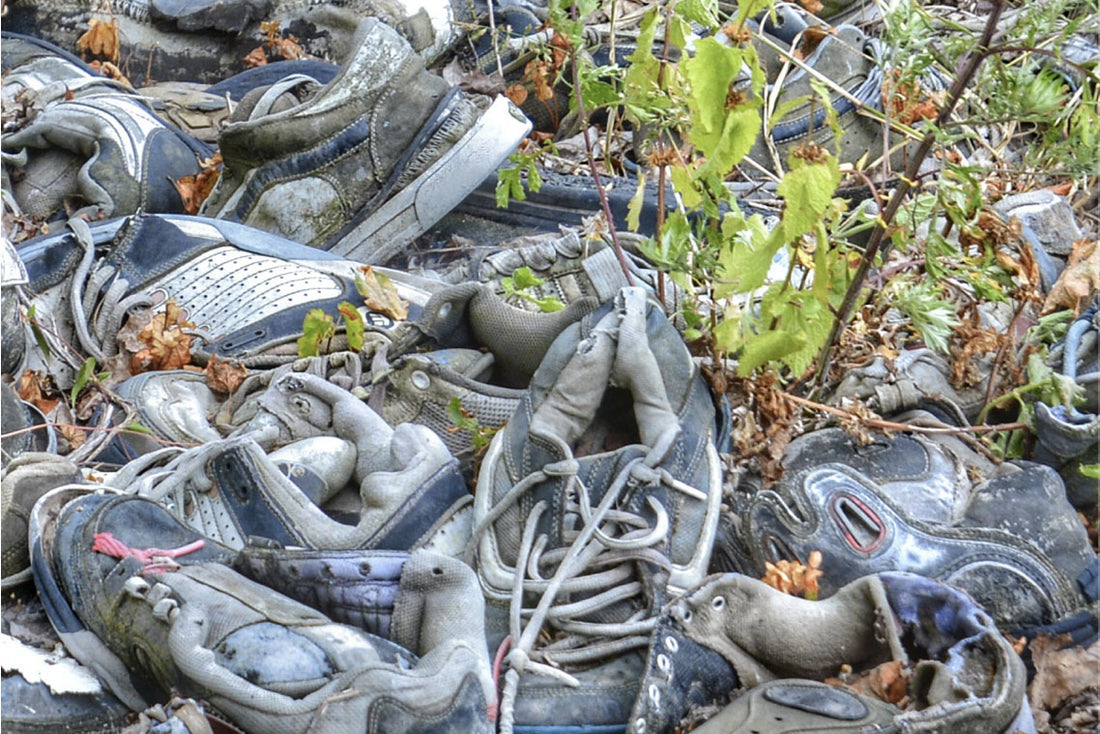The life cycle of an article of clothing is no longer what it once was. Between the ubiquity of fast fashion options and the unspoken pressure on consumers to “keep up” with the latest trends, clothes are being disposed of at an unprecedented rate. In fact, we’re reportedly purchasing clothing 60 percent more than we did 15 years ago—and it’s leaving a nasty mark on our planet.
All These Clothes Are Toxic
Once upon a time, clothing was primarily made from natural substances like cotton, wool, and untreated silk, and, as naturally occurring substances, those products would biodegrade over time. But as we continue to throw away clothes we no longer wear (or in some cases, have never worn) that are made from materials that cannot biodegrade—such as polyester, acrylic, and nylon—they end up piling up in landfills.
According to the Ellen Macarthur Foundation, we’ll purchase 93 million tons of clothing annually by 2030, and 160 million tonnes by 2050, with most of it ending up in landfills. To give you an idea of just how much 93 million tonnes is, roughly nine tons would cover an area of around 29 city blocks. And that’s just nine tonnes.
Clothes that are trashed and aren’t biodegradable will either just sit in the landfill or be burned. When left to break down on their own, these products emit chemicals that are detrimental to our ecosystems, leaching into our soil and water. You’ve probably read about how microplastics have been found even in our bodies; this is one of their sources.
It’s not surprising that burning these piles of clothing isn’t great for the environment either. The fumes that are released when clothing is burned and microplastics rain back down into the air.
Put Me Anywhere on This Green Earth
So, what’s the solution? It’s unlikely that people will buy less clothes; consumerism is showing no signs of slowing down. Some companies make the promise of “recycled” polyester, and while it’s a step in the right direction, this polyester will still eventually make its way to a landfill. Others may promote biodegradable fabrics, but still rely on polyester thread, which will also turn into harmful microplastics.
Some leaders in the sustainable fashion industry have figured out that the answer is to rely solely on plastic-free products that will naturally break down over time—and as fast as possible, since we are quickly overrunning landfills.
Freitag, a company known for their upcycling genius through repurposing truck tarps and transforming them into messenger bags, turned towards fabric made from hemp, modal, flax, and fibers made from wood in 2015. Even their buttons are made with nuts. In 2019, Vollebak turned towards algae, eucalyptus, and beech—all grown and managed sustainably—as sources to create clothing. By 2020, they moved towards wood pulp and pomegranate peel. Vollebak’s t-shirts leave no trace after 12 weeks, fully returning to nature; all one has to do is either bury it in the soil or take it out with the rest of their compost.
These types of circular designs put the wellbeing of the planet first. As these products decompose, they enrich the soil and become useful in that they can help grow new plants. Biodegradable clothing isn’t just a way of the future. It’s the here and now.
We’re Really Putting It Down
UNLESS is joining with companies that believe in plastic-free fashion. Our clothes, made 100 percent from plants, harmlessly decompose back into the earth. Plastic-free and plant-based, our goal is zero waste without sacrificing style that speaks to your individualism. Influenced by the utility and style of skate, outdoor, cold-water surf, and workwear.
It’s an innovative circular design model. Every material, construction method, and dyeing technique is developed with our “Do-Undo-Redo” mantra in mind. When you’re ready to let go of one of our products, just send ‘em back or bury them. We’ll recycle or industrial-compost them, and then use them again in new pieces or grow new plants.
UNLESS believes in leaving behind a better planet and creating zero waste without succumbing to the profit-focused ways of the fast fashion industry. We want to make this planet more liveable and stop relying on unsustainable fashion industry practices that got us here in the first place.
Sustainable fashion doesn’t have to be a novel concept. There were beautiful, well-made clothes before plastic. We're bringing back pre-plastic craftsmanship so you can feel as good as you look. It’s here, and it’s ready to be worn. Learn more about UNLESS and explore our designs now.
test



